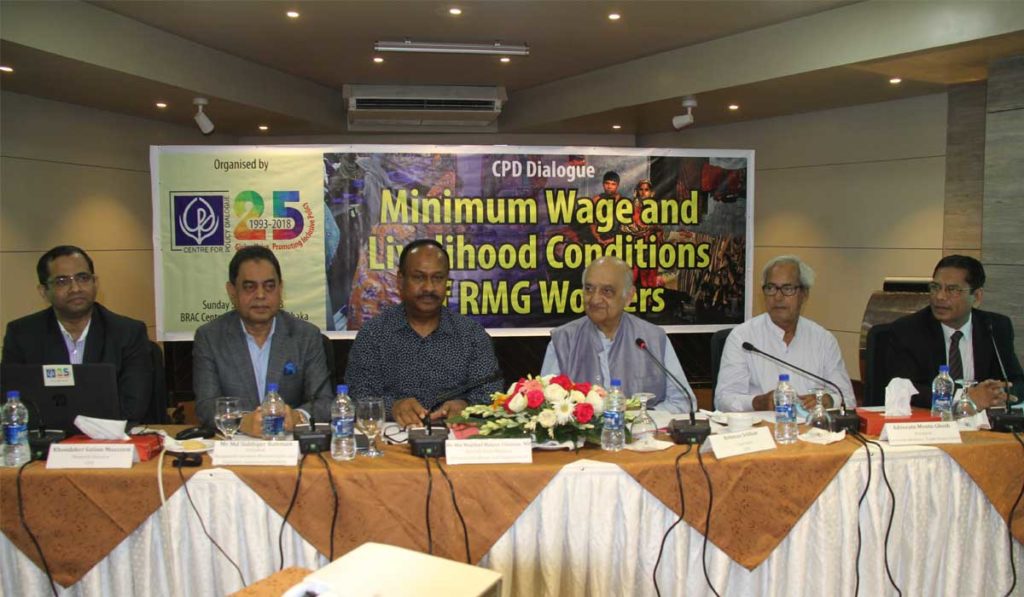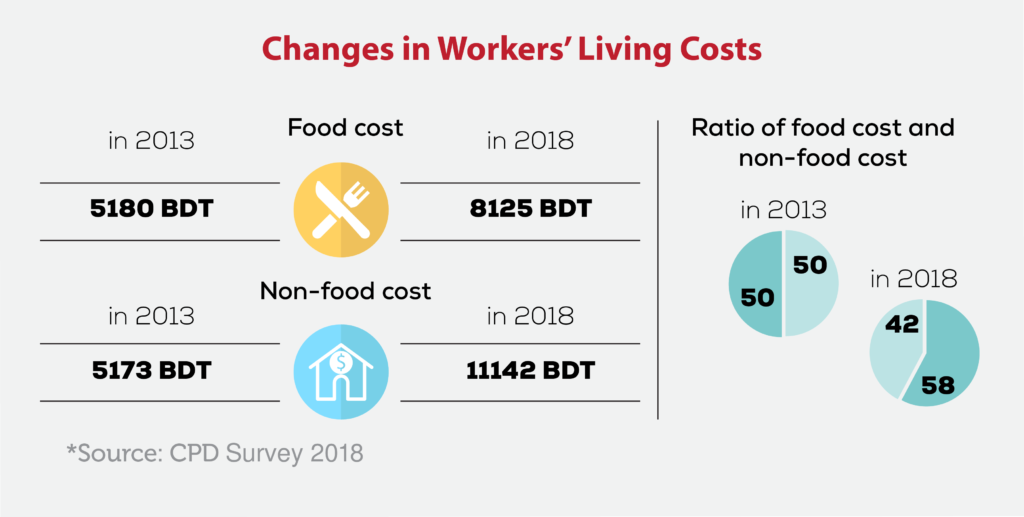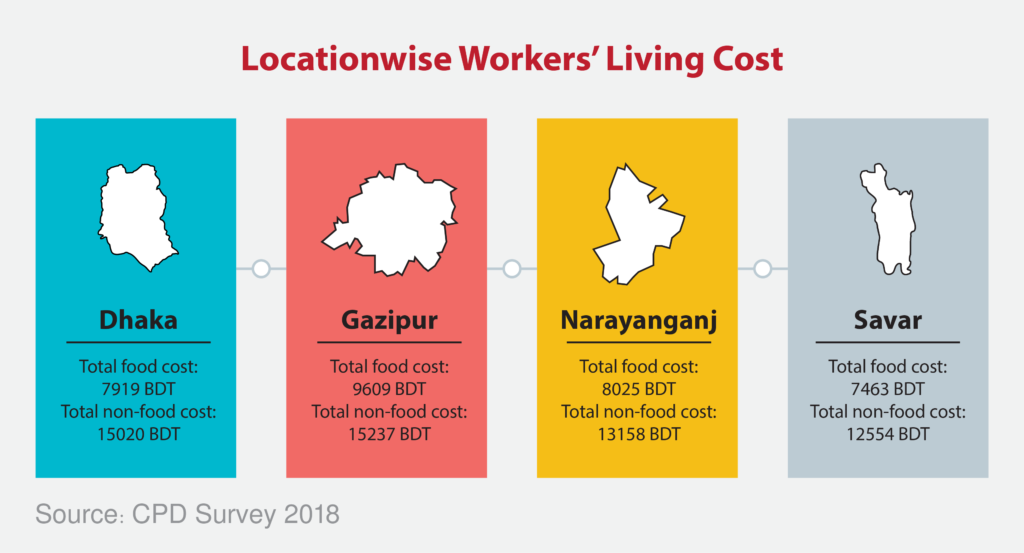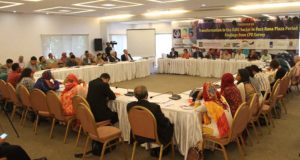
Since the last revision of RMG minimum wages, workers’ living expenses have increased by 85%. Non-food consumption of workers increased significantly compared to their expenses on food. The ongoing minimum wage restructuring process should consider these along with other livelihood issues and concerns to ensure decent living of the workers. CPD particularly suggested the minimum wage of the RMG workers to address the basic needs like housing, health and education expenses.
Dr Khondaker Golam Moazzem, CPD’s Research Director, presented these observations at the CPD dialogue titled “Minimum Wage and Livelihood Conditions of the RMG Workers” held at BRAC Centre Inn Auditorium, Mohakhali, Dhaka on 5 August 2018. The dialogue was moderated by Professor Mustafizur Rahman, Distinguished Fellow, CPD and chaired by Professor Rehman Sobhan, Chairman. Mr Md Mujibul Haque Chunnu, MP, Hon’ble State Minister for Labour and Employment was the Chief Guest at the dialogue. Mr Md Siddqur Rahman, President, Bangladesh Garment Manufacturers and Exporters Association (BGMEA) and Advocate Montu Ghosh, President, Garments Workers’ Trade Union Centre attended the event as Special Guests.

Analysing the cost of living of the RMG workers in Bangladesh, CPD proposed a grade-wise wage structure for the workers. The study proposes to abolish the seventh grade in the wage structure and suggested minimum wage for the sixth grade to be Tk. 10,028 for workers with children and a family of two earning members.
The study identified different consumption pattern in different regions and thus, suggested a region-wise wage structure. Besides grade-wise wages, CPD recommendations included introduction of payment to workers through banking, interest free credit facility, child care, education allowances and a central ‘provident fund’ scheme with workers’ savings.

Professor Sobhan emphasised the need to work on motivating the workers by providing them share in the profit and thus, ensuring participation of the workers in the decision making process. He also suggested the government to participate by keeping a separate social welfare budget. These are required to ensure distributive justice for the workers which will, in turn, increase their productivity.
In his statement, the Chief Guest, Mr Md Mujibul Haque Chunnu disagreed with the presenter’s proposal of having a region-wise wage structure as Bangladesh does not have provinces like India. He however, agreed to CPD’s suggestion to bring the wage payment of the workers under the banking process.
The productivity of the workers can be increased if the health benefits are alongside other benefits, said Advocate Montu Ghosh.
The other Special Guest, Mr Rahman stated that buyers are the most important stakeholders and should be involved in the wage fixing process through discussions with owners and workers.
The dialogue was attended by RMG factory owners, labour leaders, representatives from NGOs and development partners many of whom took part in the discussion.
Full presentation:
[pdfviewer]http://rmg-study.cpd.org.bd/wp-content/uploads/2018/08/Presentaiton-on-Addressing-the-Livelihood-Challenges-of-RMG-Workers.pdf[/pdfviewer]
 CPD RMG Study Stitching a better future for Bangladesh
CPD RMG Study Stitching a better future for Bangladesh



